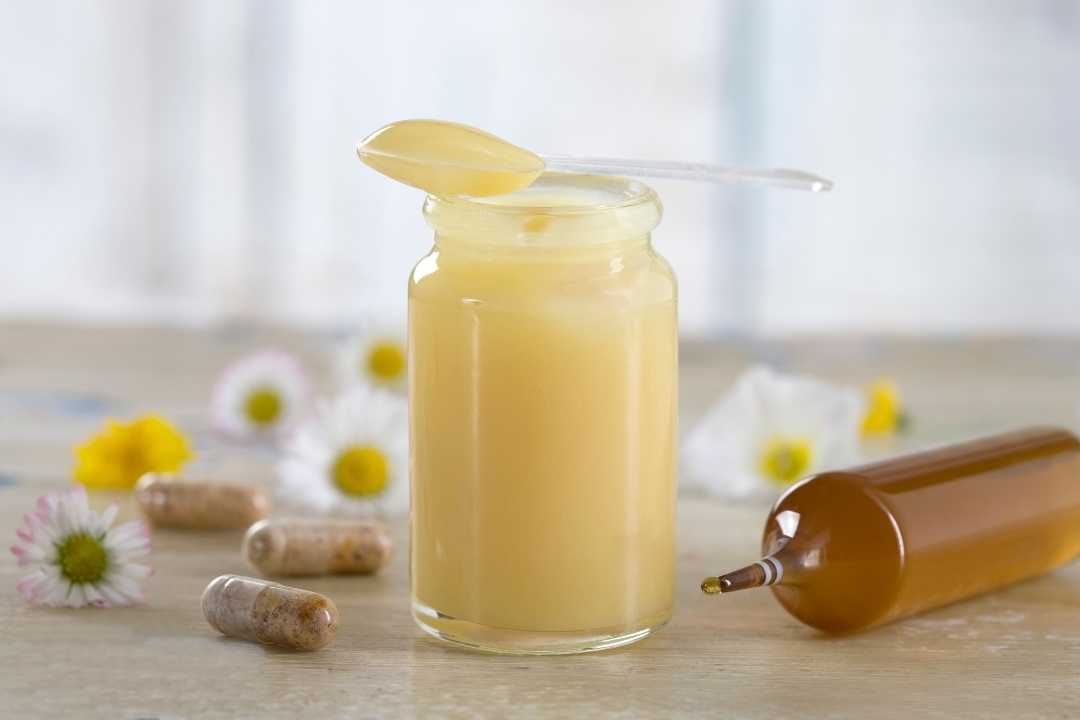Royal Jelly is a valuable example of how an ingredient can lead to a biological transformation. In addition to being a bee product, Royal Jelly is a biological structure that positively affects quality of life, fertility and physiological functions.
Royal Jelly Description
Royal Jelly is a special substance produced by bees to feed the queen bee and is also called royal jelly. This special nutrient is critical to the life cycle of the bees and the health of the colony. Royal Jelly is considered a "superfood" that is considered to have many benefits that are of interest not only to bees but also to humans.
Royal jelly is a milk-like liquid secreted by the pituitary gland of young worker bees. Thanks to this nutrient, the queen bee can reach a size 40 times larger than other bees and live for 3-5 years, whereas worker bees usually live for 6 weeks. Royal Jelly contains many nutrients such as water, protein, fatty acids, sugars, vitamins and minerals.
Health Effects of Royal Jelly
Many scientific studies have investigated the health benefits of Royal Jelly. For example, a 2016 study showed that Royal Jelly has positive effects on the immune system and that individuals who consume Royal Jelly are less likely to get sick than others.
Royal Jelly also has the potential to lower blood sugar levels and improve insulin sensitivity. In one study, 8 weeks of Royal Jelly supplementation in patients with type 2 diabetes was observed to significantly lower fasting blood glucose and HbA1c levels, which represent the average blood glucose value.
It has been observed in studies that royal jelly, which has immune-boosting effects, actually has a balancing effect and can both increase immunity and reduce excessive immune responses. Due to this feature, it has been observed to have a potential supportive role in the management of autoimmune diseases.
In addition, some of the ingredients in Royal Jelly, which contain anti-inflammatory and antioxidant properties, can reduce inflammation in the body and prevent cell damage caused by carcinogens such as free radicals. Due to these properties, royal jelly is used as a supplement that can be effective in preventing chronic diseases and slowing down the aging process.
Royal Jelly's ability to provide protective effects on the nervous system is another notable feature, and there is evidence that royal jelly has a protective effect in neurodegenerative diseases such as Alzheimer's and Parkinson's. In animal studies, Royal Jelly has been shown to protect brain cells against oxidative stress and improve cognitive function.
In addition to all these effects, royal jelly supplementation has also been shown to improve menopausal symptoms and reduce symptoms such as hot flashes, night sweats and mood changes in women who use it.
The Role of Royal Jelly in medical research
A placebo-controlled (RDBCT) study involving 61 healthy volunteers investigating the effects of royal jelly showed that regular royal jelly intake for six months significantly improved red blood cell production, glucose tolerance and mental health. In particular, significant increases in red blood cell counts and mental health scores were found.
In a study that combined and statistically analyzed the results of multiple scientific studies, Royal Jelly supplementation was found to lower total cholesterol levels by an average of 14.9 mg/dL.
In addition, in a study conducted in Japan on the effects of Royal Jelly on the skin, an increase of %5.6 in skin elasticity was observed in participants who regularly took Royal Jelly for 6 months.
Diğer bir çalışmada fertilitesi düşük erkeklerde yapılan bir araştırmada, 3 ay boyunca günlük Royal Jelly takviyesi alan grubun sperm kalitesinde %61’lik bir iyileşme kaydedilmiştir.
Menopozdaki kadınlarda yapılan bir çalışmada, 12 haftalık Royal Jelly takviyesinin ardından katılımcıların %50’sinde yaşam kalitesi skorlarında anlamlı bir artış gözlemlenmiştir.
The health effects of Royal Jelly are promising, but more large-scale and long-term clinical studies are needed. It is also recommended that people who are allergic to bee products avoid the use of royal jelly. As always, it is important to consult a healthcare professional before using any supplement.
Bibliography:
- New Insights Into the Biological and Pharmaceutical Properties of Royal Jelly. Ahmad S, Campos MG, Fratini F, Altaye SZ, Li J. International Journal of Molecular Sciences. 2020;21(2):E382. doi:10.3390/ijms21020382.
- Royal Jelly: Biological Action and Health Benefits. Oršolić N, Jazvinšćak Jembrek M. International Journal of Molecular Sciences. 2024;25(11):6023. doi:10.3390/ijms25116023.
- Royal Jelly-a Traditional and Natural Remedy for Postmenopausal Symptoms and Aging-Related Pathologies. Bălan A, Moga MA, Dima L, et al. Molecules (Basel, Switzerland). 2020;25(14):E3291. doi:10.3390/molecules25143291.
- Recent Research Directions on Functional Royal Jelly: Highlights Prospects in Food, Nutraceutical, and Pharmacological Industries. Alu'datt MH, Al-U'datt D, Rababah T, et al. Critical Reviews in Food Science and Nutrition. 2024;:1-14. doi:10.1080/10408398.2024.2418892.

